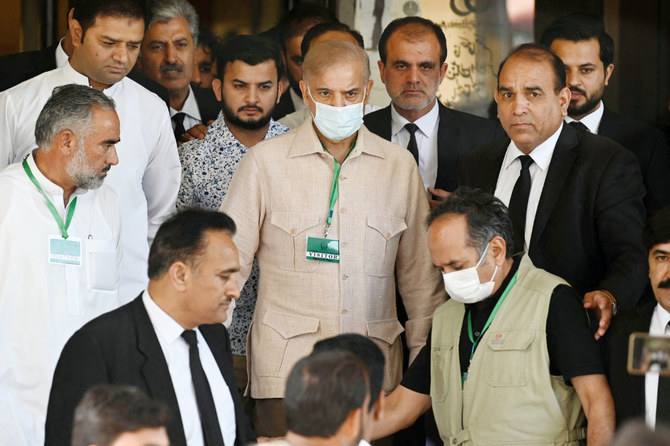The Supreme Court of Pakistan adjourned hearing arguments on Monday in a case pertaining to the blocking of a no-confidence motion against Prime Minister Imran Khan in parliament and the subsequent dissolution of the National Assembly.
National Assembly Deputy Speaker Qasim Suri on Sunday threw the South Asian country into political crisis by refusing to allow scheduled voting on the motion in light of it being orchestrated by a foreign power, and dismissed it on the grounds it was unconstitutional.
The president then dissolved the National Assembly on the advice of the prime minister so new elections could be held. The moves triggered a political and constitutional crisis in Pakistan.
The dramatic episode was the latest in an escalating dispute between Khan and parliament, after defectors from his own party and coalition partners joined the opposition and attempted to oust him from power. Khan alleges the campaign to topple his government is a foreign conspiracy orchestrated by the United States in connivance with his political opponents. The US has denied the allegations.
Opposition parties say both the deputy speaker’s dismissal of the no-trust motion without a vote and the subsequent dissolution of the National Assembly are unconstitutional.
“We cannot give a judgment in the air, the verdict will be given after hearing everyone,” Chief Justice Umar Atta Bandial said when the opposition’s lawyer, Farook H. Naik, pressed the court to conclude the case on Monday.
The courtroom was packed with lawyers, members of civil society and opposition leaders, including Shehbaz Sharif, as a larger bench of the apex court comprising the chief justice, Justice Ijazul Ahsan, Justice Mazhar Alam Khan Miankhel, Justice Munib Akhtar and Justice Jamal Khan Mandokhail heard the case.
During the proceedings, Naik told the court that the deputy speaker did not seek the opposition’s viewpoint before delivering Sunday’s ruling.
“All opposition members are accused of being traitors,” he said when Justice Akhtar asked his views about lawmakers who had defected from Khan’s party to the opposition.
The chief justice pointed out the speaker’s ruling mentioned a parliamentary committee at which the government was intending to share evidence of the alleged plot against it.
“The opposition intentionally didn’t participate in the committee,” Bandial said. “The whole issue was presented in the parliamentary committee on national security.”
The chief justice said all lawyers of the opposition parties would have to respond to the court’s questions.
The opposition’s counsel said the court should conclude the case on Monday as the assembly stood dissolved and the president was already seeking names from the prime minister and opposition leader for a caretaker prime minister.
“We heard you for two hours today and all counsels could have completed your arguments,” the chief justice said, and adjourned the hearing until Tuesday.
Earlier, the opposition counsel requested the court constitute a full court to hear the case, but the chief justice rejected it.
Pakistan Tehreek-e-Insaf lawyer Babar Awan told the court at the outset of the hearing that Khan was willing to hold fresh elections.
“This is a political statement,” Bandial said. “We want to strictly stick to the legality of the case.”
After the hearing, opposition leaders said the court should reverse the speaker’s ruling and restore the assembly.
“We are a democratic country and cannot become hostage to the ego of one person,” Qamar Zaman Kaira, a senior Pakistan Peoples Party member, told the media. “Prime Minister Imran Khan has done a civil coup that needs to be reversed immediately to uphold the rule of law and the constitution in Pakistan.”
Whatever the Supreme Court decides, Pakistan looks to be heading for fresh elections before the completion of the current term of the parliament and the prime minister next year.
If Khan prevails, polls will happen within 90 days. The opposition also wants early elections but after delivering a political defeat to Khan by ousting him through a parliamentary vote.

